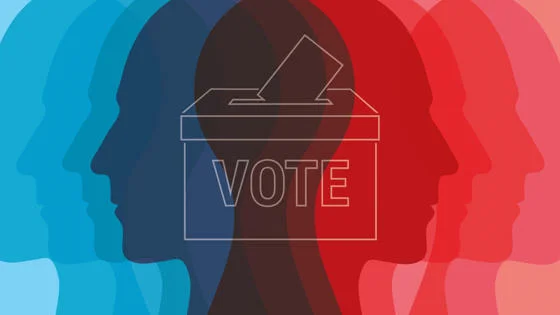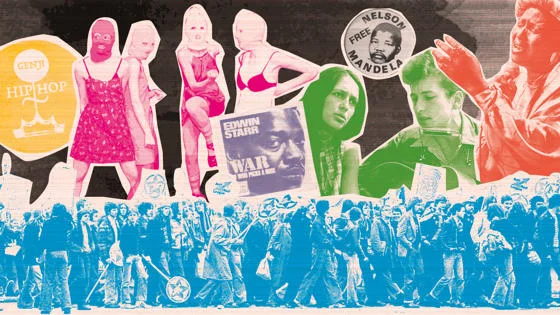"Not a panacea to reconstruction": Liberia's dual citizenship dilemma

Contents
In her new book Development, (Dual) Citizenship and Its Discontents in Africa: The Political Economy of Belonging to Liberia, Dr Robtel Neajai Pailey tells the story of two Liberians by birth. One a warlord-turned-president and one an army pilot, they allegedly stole money from the Liberian government nearly 30 years apart, before absconding to the US, their adopted home.
Given these stories – which are examples of how those with connections abroad can evade the law - it’s not hard to see why dual citizenship is a contentious issue for Liberians. Just one of seven countries in Africa to currently prohibit dual citizenship, Liberia has wrestled for more than a decade over whether to extend citizenship rights to those who hold nationality elsewhere.
There are indications that acceptance of dual citizenship is growing, however, with the results of a national referendum held in December 2020 suggesting it might become inevitable in the future, Dr Pailey, Assistant Professor in International Social and Public Policy at LSE, argues: "Although the proposition on dual citizenship did not garner a two-thirds majority vote needed for passage, most people who submitted valid ballots in the national referendum were positive about dual citizenship, and this is definitely emblematic of my research results. Of those I interviewed many years before the referendum, about 61 per cent supported dual citizenship in principle with just 18 per cent rejecting it outright."
[Liberia] was the first black African republic, and as a result the first country in Africa to devise legal norms around membership, belonging and citizenship.
Why is dual citizenship a contentious issue for Liberians?
To understand the issues behind the dual citizenship debate, Dr Pailey carried out over 200 in-depth interviews with Liberians in West Africa, Europe and North America. Her aim was to examine Liberian socio-economic change through the prism of citizenship, exploring how Liberians at home and abroad viewed dual citizenship, and how policy changes on citizenship have impacted development policy and practice.
Dr Pailey’s book is the first to investigate domestic and diasporic experiences and views around Liberian citizenship. It provides a postcolonial critique of the argument that diasporas are the solution to post-war reconstruction, and asserts that citizenship is an exchange between rights and responsibilities.
"The case study of Liberia is incredibly unique," Dr Pailey says. "It was the first black African republic, and as a result the first country in Africa to devise legal norms around membership, belonging and citizenship."
What does it mean to be a citizen? It depends on whether you are a domestic or diasporic Liberian
Key to this, she argues, is the importance of understanding how Liberians interpret citizenship differently now, depending on their lived experiences and socio-economic backgrounds. "Many domestic citizens in Liberia view dual citizenship as a zero-sum game which will infringe upon their already limited access to economic, social and political rights thereby reproducing inequalities," she says. "On the other hand, many diasporic actors argue that dual citizenship will strengthen and enable development, and that those abroad can play a key role in building the country back after years of war."
This tension is understandable, Dr Pailey explains, but with the country already an outlier in the continent and public sentiment shifting in favour of dual citizenship, it is an issue that policymakers must come to grips with.
"Dual citizenship is not a panacea to reconstruction," she says. "We just have to be clear that diasporas are both development enablers as well as development spoilers."
Dual citizenship is not a panacea to reconstruction. We have to be clear that diasporas are both development enablers as well as development spoilers
Will Liberia bring in dual citizenship in the future?
To strengthen protections for domestic Liberians, she argues, Liberia should take a gradual, phased approach to dual citizenship, while ensuring that the legal system is strengthened. "The judiciary must be reformed to ensure that Liberians abroad aren’t able to flout laws," she says. "But there are other options that could also be explored to ensure that discontentment at home doesn’t grow. Eritrea, for example, charges a two per cent diaspora tax for national development. Or Liberia could follow Sierra Leone’s example of establishing an operational office of diaspora affairs in the presidency which would harness the potential of Liberians abroad."
Whatever the future will bring, Dr Pailey is clear that dual citizenship must not simply extend rights. "I argue in my book that there is no correlation between the enactment of dual citizenship and increased economic contributions from those abroad," she says. "So, if dual citizenship does become legal, it must extend rights while also extracting responsibilities."
"I believe fundamentally that much research about Africa and/or development tends to be extractive and exploitative," she concludes. "The intention of my research, instead, is to be emancipatory and transformative. Ultimately, my book is about engaging with Liberians and other Africans about what it means to be a citizen, but most importantly what it means to be a citizen in a post-war country that has experienced upheaval."
The LSE iQ episode What does it really mean to be a citizen? is also available on LSE Player.
Dr Robtel Neajai Pailey was speaking to Jess Winterstein, Deputy Head of Media Relations at LSE.
Images:
Passport: Shutterstock
"Liberia Commemorates 2003 Peace Agreement that Ended Civil War" by United Nations Photo is licensed under CC BY-NC-ND 2.0
Download a PDF version of this article




